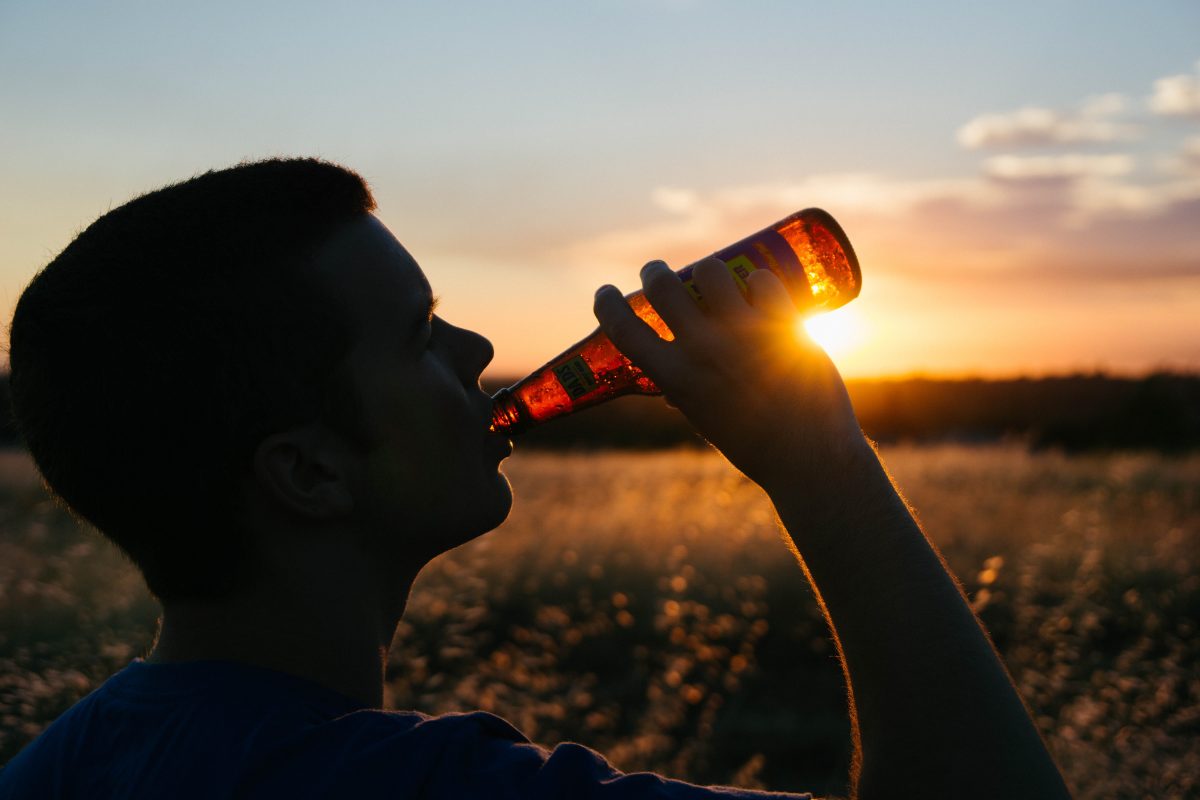Alcoholic beverages are luxury drinks and if consumed in excess can endanger athletic performance or even health.
Moderate consumption is no problem
At the same time, it is often said that a glass or two is good for your health. What is true? A Mediterranean lifestyle without the glass of red wine is simply unimaginable. And in other cultures, too, alcoholic beverages traditionally play an important role. Even in sports, after victories and personal successes, champagne corks pop again and again. Is alcohol an absolute must for everyone?
Alcohol has three basic characteristics: It is an energy source, a psychoactive drug and a poison (1). Furthermore, alcohol cannot be stored in the metabolism, which is why it has the highest priority in breaking down the nutrients that supply energy (2). You can imagine it like this: The body notices that alcohol is toxic and therefore tries to get rid of it as quickly as possible. It is difficult to convert it into fat, so it is used as an energy source. The problem is obvious: this mechanism displaces the breakdown of other energy reserves in the body, especially fat. Therefore, losing weight and consuming alcoholic beverages do not really go together.
An excess of alcohol is considered the cause of a good 60 diseases and is said to be jointly responsible for another 200 diseases (3). This is certainly the case with alcohol abuse. However, the picture is quite different for moderate consumption. Those who regularly enjoy alcoholic beverages are less likely to die prematurely of any disease compared to abstainers. Here are the concrete figures: For adult men, up to 30 grams of alcohol per day – which corresponds to two alcoholic drinks – and for women, up to 15 grams or one drink is tolerated (4). Those who drink moderately should therefore not be asked to stop for health reasons. But the reverse is true: Abstainers should not be urged to start drinking for health reasons.
From a fitness point of view, the whole thing looks quite different: In endurance sports, even small amounts of alcohol impair performance (5). In the case of short, intensive (anaerobic) performances, the situation is not so clear. However, since hardly any positive effect is to be expected here either, no alcohol consumption can generally be recommended before or during a competitive activity. Just under two years ago, a study on alcohol consumption in recovery was picked up by the media and caused confusion. The title did not promise anything good: alcohol impairs the build-up of muscle protein after athletic training (6). This was indeed true for the study, but its relevance had to be doubted, because the (lucky?) test subjects were allowed to drink 12 glasses of vodka during the recovery phase – and those who do so definitely have a problem not only with the build-up of muscle protein… The results in the other two areas during the recovery phase (replenishment of glycogen stores and replacement of fluid losses) look similar. Only with high amounts negative effects can be seen. But also here: Moderate amounts of alcohol do not lead to a better recovery than usual regeneration measures. And since alcoholic beverages can impair immune metabolism and the healing of minor injuries, athletes are advised against regular alcohol consumption even during the recovery phase.
Tips for Practice
The motto for alcohol and sports should therefore be: “Live and let live.” Anyone who likes to drink a glass should do so without a guilty conscience, preferably at meals. In sports, however, alcohol brings no benefit for performance, with possible deterioration of regeneration in the case of excessive consumption. In addition, alcohol is prohibited during competition in aerosport, automobile sport, motorboat sport and archery according to the 2016 doping list. And not to forget the influence on sleep quality. It is true that alcohol shortens the time it takes to fall asleep. But at the same time, alcohol causes problems in the second half of sleep and thus affects the overall quality of sleep (7). Therefore it is better to drink a glass of milk before going to bed. This even promotes the build-up of muscle protein during sleep!
Literature
(1) Suter PM. Proc.Nutr.Soc. 2004; 63: 81-8
(2) Schutz Y. Proc. Nutr. Soc. 2000; 59: 511-7
(3) Rocco A. World.J.Gastroenterol. 2014; 20: 14652
(4) Poli A et al. Nutr. Metab. Cardiovasc. Dis. 2013; 23: 487-504
(5) Barnes MJ. Sports Med. 2014; 44: 909-19
(6) Parr EB et al. PLoS ONE 2014; 9: e88384
(7) Ebrahim IO et al. Alcohol.Clin.Exp.Res. 2013; 37: 539-49
This Blog Article by Paolo Colombani was made available to us by Fit for Life. Fit for Life is the Swiss magazine for fitness, running and endurance sports. Would you like to read such articles regularly? Then Click here.

